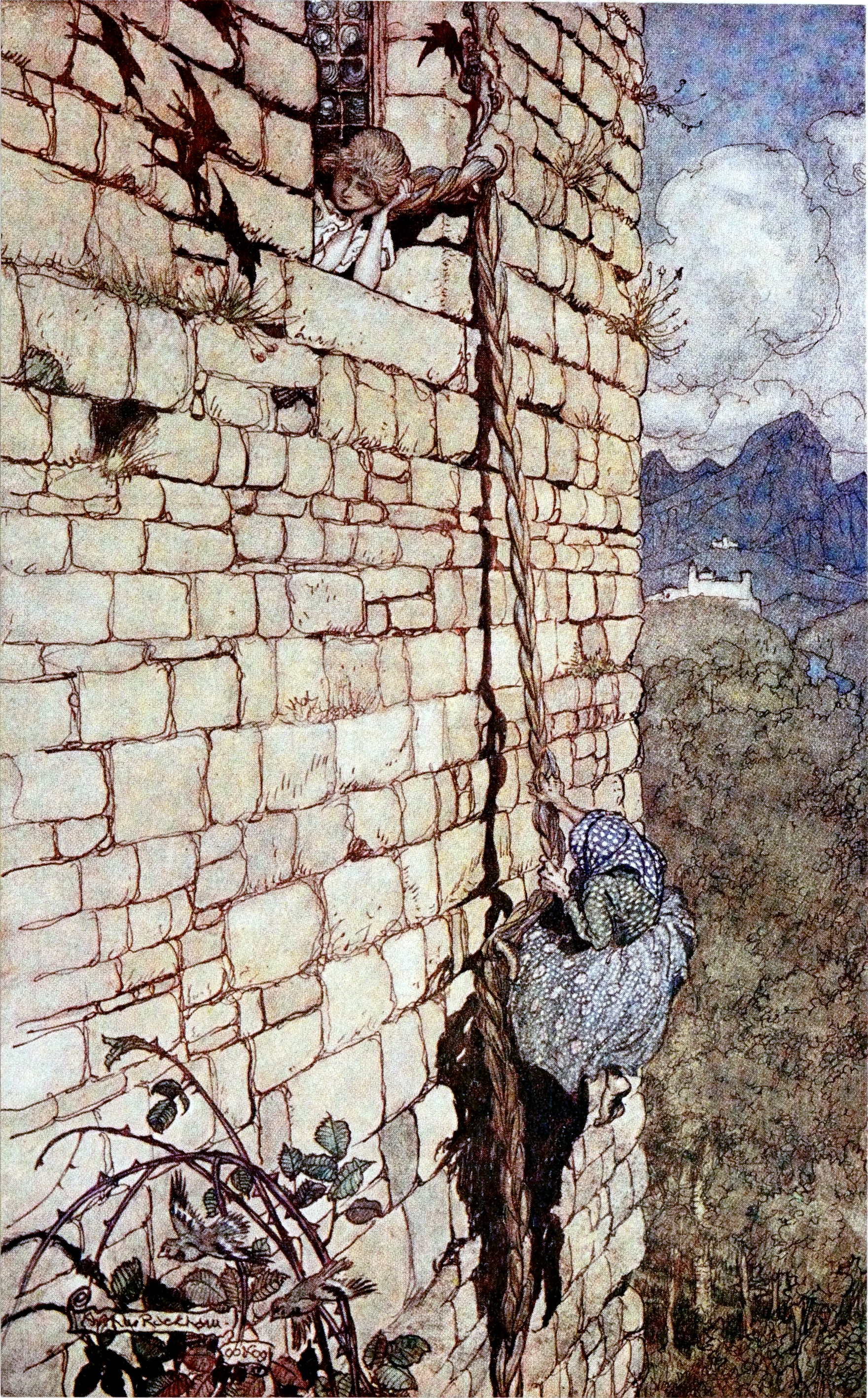“The Dwarfs, when they came in the evening, found Snowdrop lying on the ground”
Arthur Rackham, 1917 C.E.
The August 2024 Art In Medicine topic is about medicine and fairy tales.
Lucinda Bennett, the Medical Librarian at Ascension St Agnes Hospital in Baltimore, MD, publishes a regular series on Art in Medicine and The Health Humanities.
It's only 1-2 pages with gorgeous images, so it won't take you long to read
... and just might enrich your life.
Medicine & Fairy Tales
Every nation and ethnic group on earth has fairy tales; stories
used to teach lessons, entertain, and now can be read as portals
into the concerns of the past. Folklore often uses illness and
ailments as a means to move the narrative along, yet there are
many layers to the seemingly innocent stories we grew up
with. For this month’s topic, the tales of the Brothers Grimm
will be analyzed for their commentary on disease and
medicine.
“The pallor of Snow White may be a reference to albinism and
the dwarves clearly had achondroplasia. Snow White may
have eaten an apple ‘poisoned’ with Listeria cytomonogenes
which can induce coma. Alternatively, a piece of apple may
have lodged in her airway (foreign body), Snow White
recovering instantly when it was dislodged. The evil
step-mother may suffer from ‘Dorian Grey’ syndrome, a label
taken from the novel of the same name by Oscar Wilde in
which he describes a young man obsessed with his appearance
and refusing to accept the aging process. The Dorian Grey
syndrome may be a type of narcissistic personality disorder.”
(Medical conditions revealed in fairy tales) Interestingly
enough, even the antique language of the older printed fairy
tales can be related to the history of medical records. Ryan
Habermeyer, an Assistant Professor in the Department of
English at Salisbury University, delved into the patient
histories written by 19th century physician William Osler. The style of prose found in Grimm’s tales are quite similar to how doctors once wrote about their patients. “Many of the casebook entries have the poetic compression of a folktale and end just as abruptly with an equally disconcerting ambiguity that borders on poetry. Page after page patients arrive, hemorrhaging blood from the bowels or suffering from vertigo “wrought by an extra-marital affair with a younger man” or
“drowned in a sea of melancholia.” One woman visits Osler after experiencing “womb trouble” and describes
symptoms which Osler does not appear to recognize as ovarian cancer. He prescribes her a tonic and sends her on
her way.” (William Osler, Fairy Tales & Medicine)
Do physicians ever appear in Grimm’s stories? Although they are not factors in the more popular tales, like those
reimagined in sanitized animated form, doctors are characters in some lesser known fairy tales, although they are
not often portrayed in the most favorable manner.
“In “Doctor Knowall” a peasant called Crabb learns to be a doctor after reading a single textbook and styling
himself with a new set of clothes. In the end, through a series of misunderstandings, he colludes with thieves but
nevertheless ends up a wealthy and renowned man. In another tale, “The Three Army Surgeons,” a hubris-filled
physician trio who are not exactly champions of the Hippocratic Oath are punished with a darkly comic fate.”
(Hektoen International)
“The Witch Climbed Up” Arthur Rackham, 1917 C.E.
Syndromes and disorders take their names not only from
scientific basis, but also from cultural context. “Rapunzel is
locked in a tower, waiting to be rescued by a prince. She grows
her hair such that it reaches to the ground from the tower so it can
be used by the prince as a ‘rope’ ladder. Although not mentioned
in the story, excessive grooming of hair by licking, pulling and
swallowing it have caused doctors to label the combination of
trichotillomania and gastric bezoar as ‘Rapunzel’ syndrome.”
(Medical conditions revealed in fairy tales)
To note, the herb known colloquially as ‘rapunzel’ was often
eaten by women hoping for assistance in delivering a healthy
child - an action Rapunzel’s mother does showcase in the story. In
2012, a medical student curated an art exhibit on just this topic.
“The exhibit in the University of Alabama at Birmingham’s
museum, titled “The Charm was Broken, Illness and Injury in the
fairy tales of Mary de Morgan,” is based on the works of the
English author who, writing in the late Victorian period, penned
three volumes of fairy tales. Illness featured prominently in many
of her stories. She, and many in her family, suffered from
consumption and she ultimately died of the disease. The exhibit
was created by Valerie Gribben, a UAB medical student and fan
of the fairy tale genre.” (Happily Ever After) Curative in the
exhibit includes illustrations depicting unicorn horns and
perfectly ordinary herbs as viable medicines. One of the theses of the exhibit was to highlight the consumption of fairy tales as a way to process the realities experienced by the people who told those stories. How disease could be identified as the antagonist and the magical means of the hero overcoming that villain as the cure. Fairy tales could be said to be the coping mechanism of the past.
References:
Hektoen International - The Brothers Grimm under the knife
Medical conditions revealed in fairy tales, folklore and literature
Happily ever after: The lessons of medicine and fairy tales
William Osler, Medicine, and Fairy Tales
Reprinted with the generous permission of Ms. Bennett.




.jpg)




